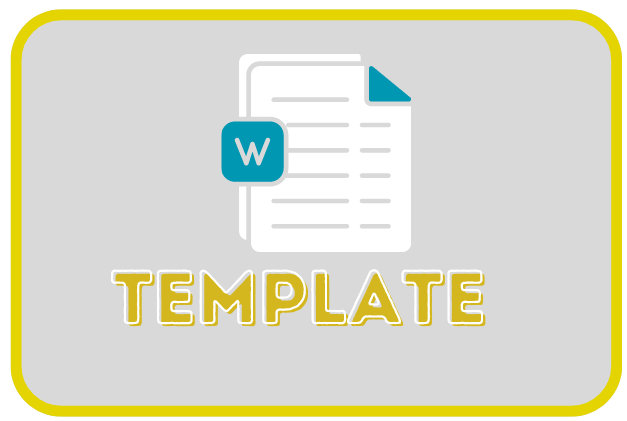EVALUASI PROGRAM TAḤFĪẒH AL-QUR’AN DI SMP PESANTREN DATOK SULAEMAN BAGIAN PUTRI PALOPO
DOI:
https://doi.org/10.24256/kelola.v8i2.3664Keywords:
Program Evaluation, Taḥfīẓh Al-Qur'anAbstract
This study aims to identify and describe: 1) Implementation of the Taḥfīẓh Al-Qur'an program at SMP Datok Sulaiman Putri Palopo; 2) The results of the evaluation of the Taḥfīẓh Al Qur'an program at SMP Datok Sulaiman Putri Palopo Division are viewed from the Context, Input, Process, and Product (CIPP). This type of research is descriptive qualitative research. Data collection was carried out using the method of observation, interviews, and documentation. The data analysis technique used is data reduction technique, data presentation, and conclusion drawing. The results of this study indicate that: 1) The implementation of the Taḥfīẓh Al Qur'an program at the Junior Datok Sulaiman Middle School for Girls is managed using an integrated curriculum between the national curriculum and the Islamic boarding school curriculum. The teaching of the Taḥfīẓh Al Qur'an program at Datok Sulaiman Middle School is carried out using the tahsin, sabaq-sabqi, manzil and diniyah methods. 2) Evaluation of the Taḥfīẓh Al-Qur'an Program at SMP Datok Sulaiman Putri Palopo Division in terms of: 1) Context evaluation, namely having clear goals and planning so as to motivate students in memorizing the Qur'an with good support from the school. 2) Input Evaluation, namely the competency of the taḥfīẓh teacher by having the ability to memorize 30 chapters and understand reading the Qur'an. Meanwhile, students who participate in the taḥfīẓh Qur'an program have high enthusiasm for memorizing. This program is supported by adequate facilities and infrastructure. 3) Evaluation of the Process in the Taḥfīẓh Qur'an program, namely the implementation runs smoothly and according to what has been planned. The method used by the teacher consists of tahsin, sabaq-sabqi, manzil and diniyah methods. The obstacles found in the taḥfīẓh program are the uneven enthusiasm of the students in participating in the taḥfīẓh Al-Qur'an program and the lack of self-motivation in trying to memorize the Qur'an and the tight time for studying. 4) Product/outcome evaluation of the taḥfīẓh Qur'an program, namely the results (output) achieved in terms of three domains (cognitive, affective, and psychomotor), the outcome of the taḥfīẓh Qur'an program, and the benefits that have been obtained by students
References
Abdullah, Shodiq. Evaluasi Pembelajaran: Konsep Dasar, Teori dan Aplikasi. Semarang, Pustaka Rizki Putra, 2012.
Ahmad, Jamaluddin. Metode Penelitian Administrasi Publik Teori dan Aplikasi. Yogyakarta, Gava Media, 2015.
Ahsin W. Bimbingan Praktis Menghafal Al-Qur’an. Jakarta, Bumi Aksara, 2004.
Anidi. Evaluasi Program Pembelajaran. Yogyakarta, Parama Publishing, 2017.
Arikunto, Suharsimi. Prosedur Penelitian Suatu Pendekatan Praktek. Jakarta, Rineka Cipta, 2006.
Arikunto, Suharsismi dan Abdul Jabar, Cepi Safruddin. Evaluasi Program Pendidikan. Jakarta, Bumi Aksara, 2009.
Badan Standar Nasional Pendidikan, Peraturan Pemerintah RI Nomor 17 Tahun 2010Tentang Pengelolaan dan Penyelenggaraan Pendidikan Dilengkapi 8 Standar Nasional Pendidikan. Jakarta, Binatama Raya, 2010.
Daryanto. Evaluasi Pendidikan: Komponen MKDK. Jakarta, Rineka Cipta, 2010.
Gronlund, Norman E. dan Linn, Robert L. Measurement and Evaluation in Teaching, ed. 6. New York: Macmillan Publishing Company, 1990.
Hamalik, Oemar. Dasar-Dasar Pengembangan Kurikulum. Bandung, Remaja Rosdakarya, 2008.
Hasyim, Muhsin Abu. Panduan Praktis Tajiwid dan Bid’ah–Bid’ah Seputar al Qur’an serta 205 Kesalahan dalam Membaca al Fatihah. Magetan, Maktabah Daarul Atsar, 2007.
Ibrahim, R. dan Syaodih S., Nana. Perencanaan Pengajaran. Jakarta, Rineka Cipta, 1996.
Imam Abu Yahya Bin Syaraf An-Nawawi. At-Tibyan Adab Para Penghafal Al-Qur’an, Terj. Umniyyati Sayyidatul Hauro’ dkk. Sukoharjo, al Qowam, 2005.
Majid, Abdul. Perencanaan Pembelajaran, Mengembangkan Standar Kompetensi Guru. Bandung, PT. Remaja Rosdakarya, 2012.
Moleong, Lexy J. Metode Penelitian Kualitatif . PT. Remaja Rosdakarya, Bandung, 2007.
Nasution, S. Asas-Asas Kurikulum. Jakarta: Bumi Aksara, 2008.
Sa’ud, Udin Saefudin. Inovasi Pendidikan. Bandung, Alfabeta, 2020.
Sadiman, Arief S. Dkk. Media pendidikan. Jakarta, PT. Raja Grafindo Persada, 1986.
Sagala, Syaiful. Manajemen Berbasis Sekolah dan Masyaratak Strategi Memenangkan Mutu. Jakarta, Nimas Multima, 2006.
Stufflebeam , Daniel L. dan Shinkfield, Anthony J. Evaluation Theory, Models, and Applications. San Francisco: Jossey-Bass, 2007.
___________. Systematic Evaluation. Boston: Kluwer Nijhoff, 1985.
Stufflebeam, Daniel L. et.al. Evaluation Models Viewpoints on Educational and Human Services Evaluation. Second Edition, Boston, Kluwer Academic Publishers, 2002.
Sudijono, Anas. Pengantar Evaluasi Pendiddikan. Jakarta, PT. Raja Grafindo Persada, 2011.
Tien, Rafida dan Rusydi, Ananda. Pengantar Evaluasi Program Pendidikan. Medan, Perdana Publishing, 2017.
Umaedi. Manajemen Peningkatan Mutu Berbasis Sekolah. Jakarta, Departemen Pendidikan Nasional, 2000.
UU No. 20 tahun 2003: Sisdiknas, Bab XI, Pasal 39 ayat 2 e.
Wahid, Wiwi Alawiyah. Cara Cepat Bisa Menghafal al-Qur’an. Jogjakarta, Diva Press, 2014.
Wirawan. Evaluasi: Teori, Model, Standar, Aplikasi, dan Profesi, Contoh Aplikasi Evaluasi Program: Pengembangan Sumber Daya Manusia, Program Nasional Pemberdayaan Masyarakat (PNPM) Mandiri Pedesaan, Kurikulum, Perpustakaan, dan Buku Teks, Ed. 1. Jakarta, Rajawali Pers, 2011.




 This is an open access article under the
This is an open access article under the 